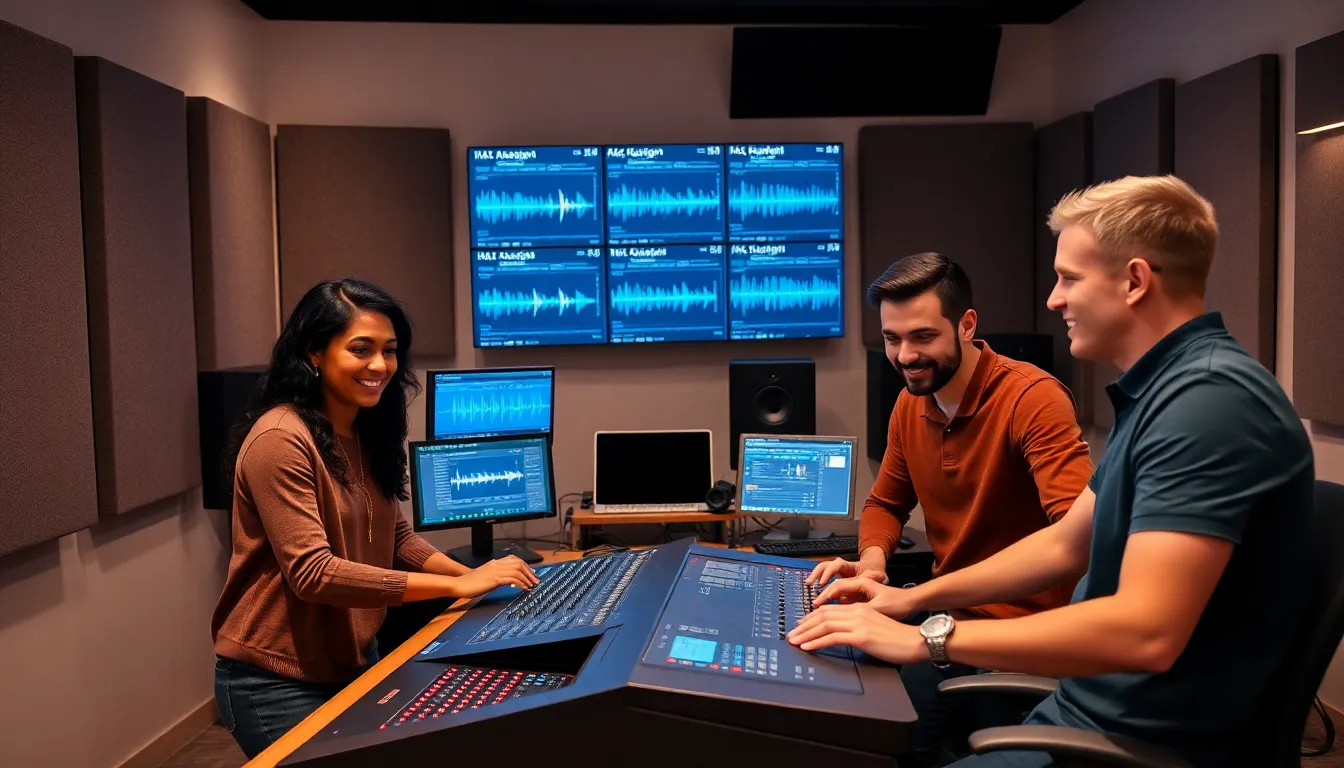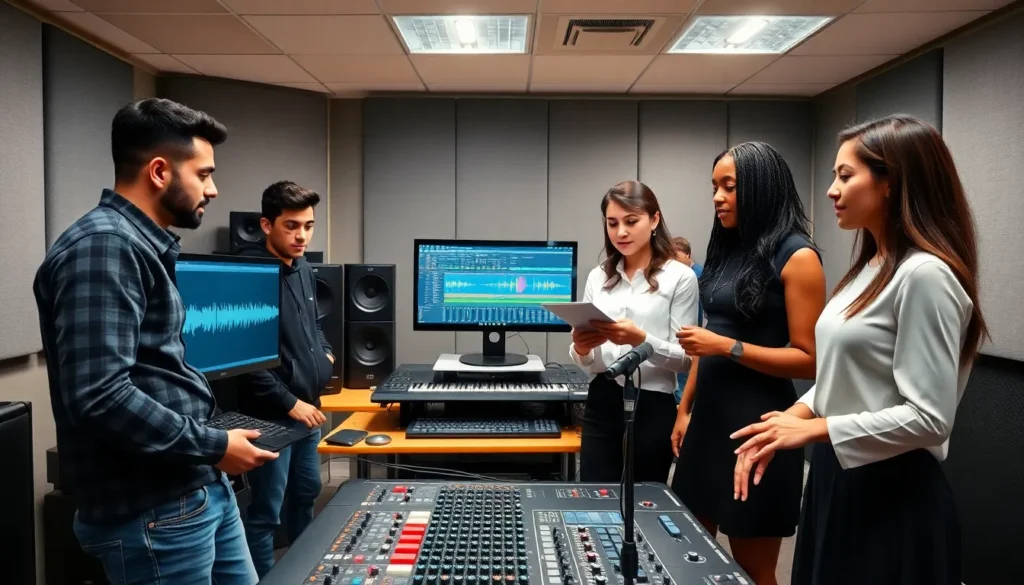Ever dreamed of turning sound waves into gold? An audio technology degree might just be your golden ticket. In a world where music, film, and digital soundscapes dominate our lives, the demand for savvy audio professionals continues to rise. This degree not only teaches the nitty-gritty of sound engineering but also opens doors to a symphony of career opportunities. Ready to jump into the world of beats, mixing, and sound engineering? Let’s explore what this degree has to offer.
Table of Contents
ToggleWhat Is an Audio Technology Degree?

An audio technology degree focuses on the science and art of sound. Students investigate into sound design, music production, and audio engineering, blending creativity with technical skills.
The curriculum often encompasses a mix of theoretical knowledge and hands-on practice. This fusion helps students understand how sound works, think waves, frequencies, and acoustics, while exploring production techniques used by industry professionals. It’s about crafting experiences through sound and mastering the tools that bring those experiences to life.
Core Curriculum of Audio Technology Programs
Students pursuing an audio technology degree encounter a diverse curriculum designed to equip them with essential skills. Typical core subjects include:
Sound Engineering
This foundational course introduces students to recording techniques, mixing, and mastering. It often includes hands-on projects that bring theory into practice.
Digital Audio Production
Here, students learn about software used in the industry, such as Pro Tools and Logic Pro. They gain insight into digital audio workstations (DAWs) and how to manipulate sound.
Acoustics
Understanding how sound travels and behaves is crucial. This course covers topics like sound absorption and room design, ensuring students can create the best listening environments.
Music Theory
Even if one isn’t a musician, grasping the basics of music theory helps with audio production. This knowledge aids in composition and sound arrangement.
Audio Post-Production
In this module, students discover the world of film and television audio. They learn to sync soundtracks, sound effects, and dialogue, ensuring a seamless auditory experience.
Skills Acquired Through an Audio Technology Degree
Graduates of audio technology programs emerge with a robust skill set valuable in the industry. Key skills include:
Technical Proficiency
Being comfortable with various software and hardware tools is essential. Graduates can mix and master audio tracks, operate studio equipment, and troubleshoot technical issues.
Creativity
Creating captivating audio content demands a creative flair. Graduates often showcase their ability to think outside the box, producing unique soundscapes that resonate with audiences.
Communication Skills
Collaboration is a big part of audio projects. Graduates learn to effectively communicate ideas, provide feedback, and work harmoniously with other professionals, such as musicians and directors.
Attention to Detail
In audio, every sound counts. Graduates develop a keen ear, paying close attention to nuances that can make or break a recording.
Career Opportunities with an Audio Technology Degree
With an audio technology degree, graduates enjoy a broad range of career options:
Sound Engineer
Working behind the scenes, sound engineers manage the technical aspects of recording, mixing, and producing audio for music, film, or live events.
Music Producer
This role involves overseeing the production of music tracks, guiding artists, and making creative decisions that shape sound.
Audio Editor
Audio editors work in various media, cutting and combining recordings to create a polished final product.
Acoustical Consultant
For those interested in architecture and design, acoustical consultants help create sound-friendly environments, like concert halls and recording studios.
Live Sound Technician
These professionals manage sound for live events, ensuring performers sound their best in front of an audience.
Top Institutions Offering Audio Technology Degrees
Several institutions stand out for their audio technology programs, including:
Berklee College of Music
Located in Boston, Berklee offers a Bachelor of Music in Music Production, providing students with comprehensive training in music and audio production.
Full Sail University
Known for its hands-on approach, Full Sail in Florida offers a Bachelor of Science in Audio Production, emphasizing real-world projects and collaborations.
University of Miami
The Frost School of Music at the University of Miami has a robust program focusing on music engineering and production, preparing students for various audio careers.
SAE Institute
With campuses worldwide, SAE offers degrees in audio engineering that blend technical instruction with creative practice, catering to aspiring audio professionals.
The Future of Audio Technology Education
As technology evolves, so does the audio field. Innovations in artificial intelligence, virtual reality, and streaming services reshape how audio is produced and consumed.
Educational institutions adapt their curricula to include these advancements. Programs now emphasize skills for new audio delivery systems and technologies to keep pace with industry changes. The future looks promising, with audio technology education leading the charge in preparing students for tomorrow’s challenges.





